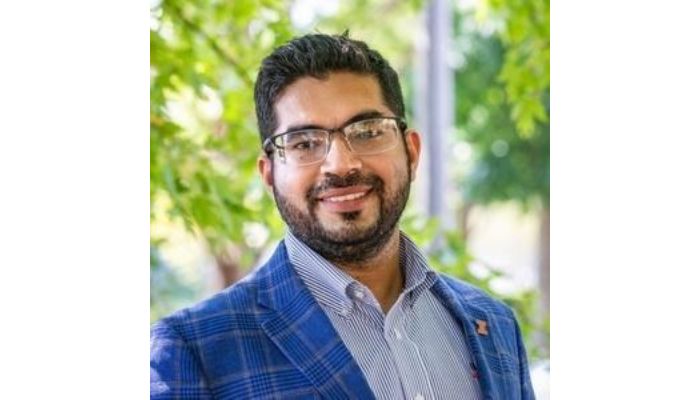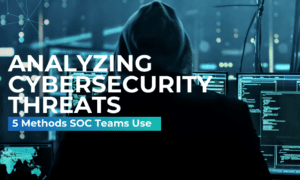TechBullion recently spoke with Vaibhav Malik, Global Partner Solutions Architect Leader at Cloudflare, about his extensive experience in cybersecurity, cloud technologies, and IT leadership. Malik shared insights on the evolving landscape of cybersecurity, the impact of AI on the industry, and his approach to driving innovation in enterprise-level solutions.
TechBullion: Can you tell us about your current role at Cloudflare and how your academic and professional background in both IT and business informs your work?
Vaibhav Malik: As the Global Partner Solutions Architect Leader at Cloudflare, I work with the world’s largest Global System Integrators (GSIs) to design and implement Cloudflare solutions for customers. My role involves bringing technical thought leadership and expertise to evangelize and represent Cloudflare with our GSI partners, effectively showcasing the value of our solutions.
My academic background, which includes an MBA from the University of Illinois and an MS in Telecommunications from the University of Colorado, has been instrumental in shaping my approach. This combination of technical expertise and business acumen allows me to bridge the gap between complex technological solutions and their business implications. I can effectively communicate with both technical teams and C-level executives, ensuring that our solutions align with both technical requirements and overarching business objectives.
TechBullion: You’ve been at the forefront of cybersecurity innovation. How do you see AI and machine learning transforming the cybersecurity landscape?
Vaibhav Malik: AI and machine learning are revolutionizing cybersecurity in numerous ways. At Cloudflare, we’re leveraging these technologies to enhance our threat detection and response capabilities. AI allows us to analyze vast amounts of data in real time, identifying patterns and anomalies that would be impossible for humans to detect manually.
One of the most exciting developments is the use of AI in predictive security. By analyzing historical data and current trends, AI can help predict potential future attacks, allowing organizations to strengthen their defenses proactively. However, it’s crucial to note that as we advance in using AI for defense, malicious actors are also leveraging AI for more sophisticated attacks. This creates an ongoing challenge that requires constant innovation and adaptation.
TechBullion: You’ve led significant infrastructure initiatives throughout your career. Can you share an example of a particularly challenging project and how you approached it?
Vaibhav Malik: One of the most challenging and rewarding projects I’ve led was at Lumen Technologies, where I architected and implemented their Cloud Interconnect offering. This project involved creating seamless connectivity solutions for major cloud service providers like AWS, GCP, and Azure.
The challenge was not just technical – it required a deep understanding of diverse cloud environments, networking protocols, and security requirements. Moreover, we needed to ensure the solution was scalable, cost-effective, and aligned with Lumen’s business strategy.
Our approach involved a phased implementation, starting with a thorough analysis of market needs and existing solutions. We then developed a robust architecture that could adapt to different cloud environments. A key aspect was collaborating closely with cloud providers to ensure optimal integration.
The result was a highly successful offering that drove $10 million in revenue within the first two years. This project exemplified how technical expertise, strategic thinking, and cross-functional collaboration can deliver significant business value.
TechBullion: You’ve written about securing AI-native application workloads. What do you see as the biggest challenges and opportunities in this area?
Vaibhav Malik: Securing AI-native application workloads presents significant challenges and exciting opportunities. One of the primary challenges is the dynamic and often unpredictable nature of AI models, huge language models (LLMs). These models can be vulnerable to various attacks, including data poisoning and prompt injection, compromising the integrity and reliability of AI-driven applications.
Another challenge is maintaining privacy and compliance, particularly when dealing with sensitive data used to train or interact with AI models. As AI becomes more integrated into critical business processes, ensuring the security and trustworthiness of these systems becomes paramount.
However, these challenges also present opportunities for innovation. At Cloudflare, we’re working on developing robust security frameworks specifically designed for AI workloads. This includes implementing zero-trust architectures that can secure the entire AI pipeline, from data ingestion to model deployment and inference.
The opportunity lies in creating a new paradigm of AI security that not only protects against current threats but is also adaptable to future challenges. This involves developing advanced monitoring systems, implementing strict access controls, and leveraging AI itself to enhance security measures.
TechBullion: You’ve been involved in various industry associations and contributed to open standards. How important do you think collaboration is in advancing cybersecurity?
Vaibhav Malik: Collaboration is absolutely crucial in advancing cybersecurity. The threat landscape constantly evolves, and no organization can tackle all the challenges alone. My involvement with organizations like the Cloud Security Alliance and contributions to projects like OWASP have reinforced this belief.
By collaborating on open standards and sharing knowledge, we create a collective defense against cyber threats. It allows us to pool resources, share best practices, and develop more comprehensive solutions. For instance, my work on the OWASP Top 10 for Large Language Model Applications has been a collaborative effort to identify and address the unique security challenges posed by AI and LLMs.
Moreover, collaboration fosters innovation. When diverse minds from different organizations come together, it often leads to breakthrough ideas and solutions that might not have emerged in isolation.
At Cloudflare, we strongly believe in this collaborative approach. Our Project Galileo, which provides free protection to vulnerable public interest websites, is a testament to how industry collaboration can make the internet a safer place for everyone.
TechBullion: Looking ahead, what trends do you think will shape the future of cybersecurity and cloud technologies?
Vaibhav Malik: Several trends are poised to shape the future of cybersecurity and cloud technologies:
- AI-Driven Security: As AI becomes more sophisticated, we’ll see increased use of AI and machine learning in both defensive and offensive security measures. This will lead to more adaptive and predictive security systems.
- Zero Trust Architecture: The shift towards zero trust models will continue, especially as remote work becomes more prevalent. This approach, which assumes no trust and verifies every access request, will become the norm rather than the exception.
- Edge Computing Security: Securing these distributed systems will become crucial as more computing moves to the edge for better performance and reduced latency. This will drive innovations in edge security solutions.
- Quantum-Safe Cryptography: With the advancement of quantum computing, there’s a growing need for quantum-resistant encryption methods to protect against future threats.
- Privacy-Enhancing Technologies: As data privacy regulations become stricter, we’ll see more emphasis on technologies that enable data analysis while preserving privacy, such as homomorphic encryption and federated learning.
- Cloud-Native Security: As organizations continue to adopt cloud-native architectures, security solutions specifically designed for these environments will evolve rapidly.
- Automated and Continuous Security Testing: With the speed of software development increasing, there will be a greater emphasis on automated and continuous security testing integrated into the development lifecycle.
At Cloudflare, we’re actively working on solutions addressing these trends, ensuring our customers are prepared for the evolving digital landscape. The key will be to stay agile and continue innovating to stay ahead of potential threats.
TechBullion: Finally, what advice would you give to aspiring professionals looking to make an impact in the cybersecurity field?
Vaibhav Malik: For aspiring professionals looking to make an impact in cybersecurity, I have several pieces of advice:
- Continuously Learn: The field of cybersecurity is rapidly evolving. Stay curious and commit to lifelong learning. Keep up with the latest trends, technologies, and threat landscapes.
- Develop a Broad Skill Set: While specialization is valuable, it is crucial to have a broad understanding of various aspects of IT and security. This includes networking, cloud technologies, coding, and even business principles.
- Gain Practical Experience: Theory is essential, but hands-on experience is invaluable. Participate in cybersecurity challenges, contribute to open-source projects, or set up your lab to experiment with different technologies.
- Cultivate Soft Skills: Technical skills are essential, but soft skills like communication, teamwork, and problem-solving are equally important, especially as you progress in your career.
- Embrace Ethics: Cybersecurity professionals have access to sensitive information and powerful tools. Always maintain high ethical standards and use your skills responsibly.
- Network and Collaborate: Join professional associations, attend conferences, and engage with the cybersecurity community. Networking can lead to mentorship opportunities and career advancements.
- Think Like an Attacker: To defend effectively, you need to understand how attackers think. Develop a security mindset that anticipates potential vulnerabilities and threats.
- Stay Adaptable: The only constant in cybersecurity is change. Be prepared to adapt to new technologies, methodologies, and challenges.
Remember, cybersecurity is not just about protecting systems; it’s about safeguarding people, businesses, and society. With dedication and the right approach, you can make a significant impact in this critical field.



































